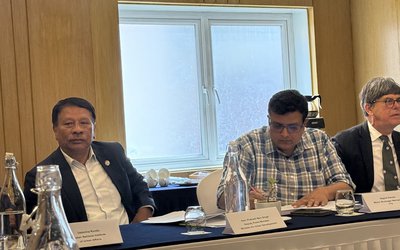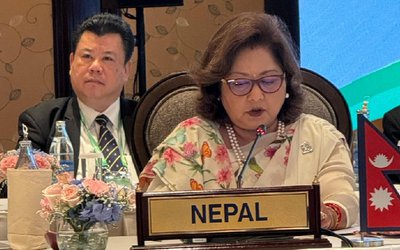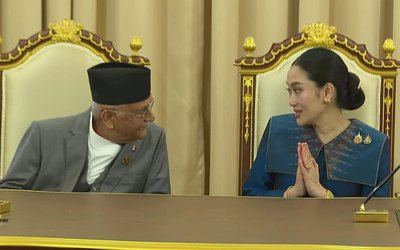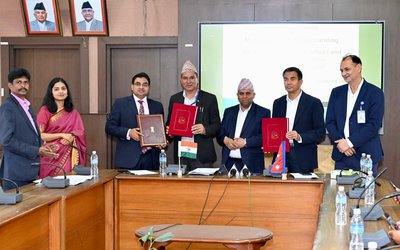
Violence is one of the greatest threats to free and fair elections, and the risk of violence is has is present in nearly every election in the form of physical violence, intimidation and harassment.
Nepal has witnessed electoral violence over the past two decades despite election codes of conduct, and security arrangements. A number of studies have shown that most violence occurs before the elections.
There are deep concerns over recent incidents of attacks on candidates, and it appears that security challenges are formidable as Nepal approaches federal and provincial assembly elections on November 26 and December 7, 2017. These elections are crucial to operationalize the federal system of governance as per the new constitution in 2015.
Fears of violence have increased after a series of explosions targeted candidates to disrupt the elections. Despite the government's assurance to ensure full-proof security for the election, candidates have been facing attacks in various parts of the country during electoral campaigns. The elections may be affected if full-proof security is not ensured.
The government has devised an integrated security system for the elections. But, it has not been effective dealing with security threats. It appears that the security system needs to be revisited and improvised as pre-election violence continues. The government, security forces and intelligence units should work together to assess security risks and devise election security plan. The security plan should be dynamic as the security situation could be changed anytime.
We also need to distinguish between violence aimed at disrupting electoral process by groups or political parties who do not want the elections to take place, and violence triggered by the rivalry between the contesting candidates or political parties. In the case of former one, the government must take informed actions on anyone, group or forces, whoever be, and avoid culture of impunity.
In the case of latter, violence during the campaign is usually aimed at changing electoral outcomes, often by targeting candidates and supporters. The political parties should exercise professional conduct and ethics. It is equally important that security forces do not use excessive forces while tackling political groups.
While discussing all these, the Ministry of Home Affairs is without a dedicated minister. The Prime Minister (also the Home Minister) is busy with his own election campaign, and he has not been able to strategize electoral security at this critical time. There is a political vacuum in the security arrangement, which must be addressed.
Analyzing, causes of electoral violence, it is seen as a sub-set of political violence with a coercive and deliberate strategy used by groups or political parties to advance their interest in the face of an uncertain election outcome.
The current violent trend is a threat not only to the forthcoming local elections, but also to a larger peace and security in the country. How can political parties in the government and opposition work together for peace, stability and development after the elections?
We need a system in place to monitor, prevent, mitigate and manage electoral violence throughout the electoral cycle. The government should critically reflect on the current security systems, while political parties should critically reflect on their conducts and reform themselves to address electoral violence. The government must protect the candidates, and the rights of citizens to participate in the electoral process without fear of violence.
- World Humanitarian Day 2024: Committing to Peace and Accountability
- Aug 19, 2024
- Nepal Investment Summit: Unlocking Economic Potentials For Growth And Development
- Apr 28, 2024
- Investing In Women: Accelerating Progress
- Mar 10, 2024
- Embracing The 'Empty Chair: Advancing Global Inclusivity And Equitable Development
- Dec 29, 2023
- Mental Health In Youth
- Jul 16, 2023















